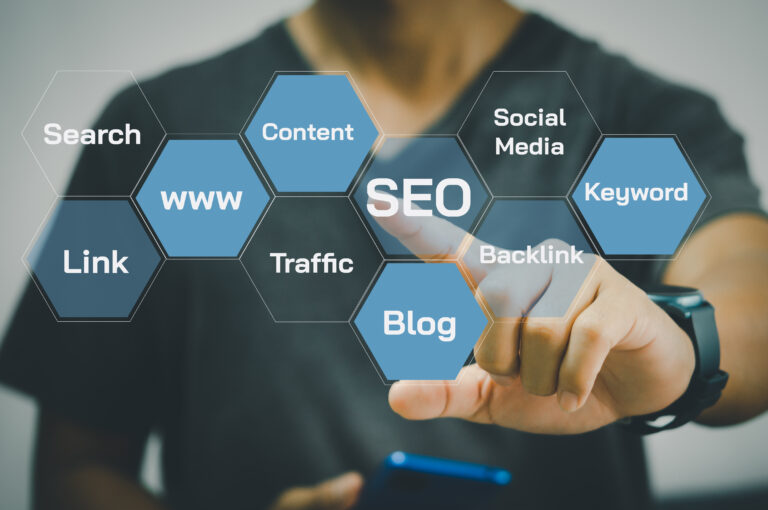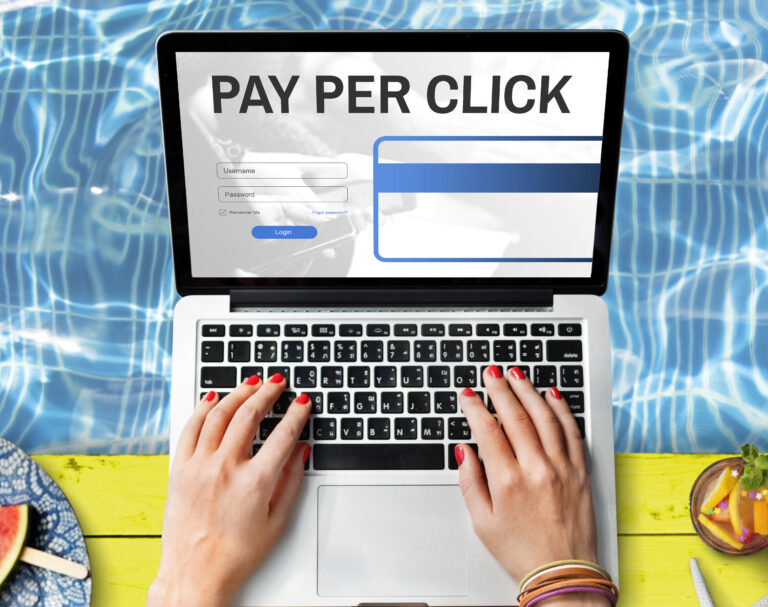In a world where digital marketing is always switching lanes, picking the right strategy can feel like navigating rush hour traffic—confusing and stressful. Search Engine Optimization (SEO) vs Pay-Per-Click advertising (PPC) – these two are the all-stars in digital marketing. But which one scores the most points? Let’s break it down.
Both have their pros and picking the ‘best’ depends on what you’re aiming for—long-term wins or fast-track success. This article is intended to take you through a complete SEO vs PPC comparison guide so that by the end of it, your way ahead would henceforth lead you only toward what will work best for the success story of your business.
What is SEO?
SEO is the art of making Google love your site. It’s all about getting your brand to rank organically, driving long-term, unpaid traffic that keeps flowing. No ads—just a smart strategy
With SEO, you’re playing the long game—getting your site to show up organically when someone types in those golden keywords. This is the reason for search engine optimization, it consists of several tactics such as on-page SEO, off-page SEO, technical SEO, and content creation.

Advantages of SEO
Cost-Effective: Once your website ranks high in search results, you don’t need to pay for clicks or impressions, making SEO a cost-effective long-term strategy.
Sustainable Results: SEO offers long-lasting results. Unlike PPC, where traffic stops when you stop paying, a well-optimized website can continue to drive traffic over time.
Builds Trust and Credibility: Ranking organically in search engines can establish your brand as an authority in your industry, enhancing trust and credibility with your audience.
Higher Click-Through Rates (CTR): Organic listings often receive more clicks than paid ads, especially when users trust the website’s ranking.
Better User Experience: SEO focuses on improving website performance, speed, and usability, leading to a better overall user experience.
Disadvantages of SEO
Time-Consuming: SEO takes time to show results. It can take months to achieve significant rankings and traffic improvements, making it less suitable for short-term goals.
Algorithm Dependency: Search engines frequently update their algorithms, which can impact your rankings. Staying up-to-date with algorithm changes is crucial.
Competitive Nature: In highly competitive industries, achieving and maintaining top rankings can be challenging and may require ongoing efforts and resources.
Uncertainty: There’s no guarantee of success with SEO, as rankings depend on various factors, including competition and search engine algorithms.
What is PPC?
PPC is like paying for the fast pass—your ads get front-row seats, but you’ll pay every time someone clicks. It’s the ‘here and now’ of SEO vs. PPC debate. PPC ads appear at the top of search engine results pages or on social media platforms.
The most common form of PPC is Google Ads, where businesses bid on keywords to display their ads to users searching for related terms. PPC allows businesses to drive traffic quickly by paying for visibility.
Know More: Mastering PPC in 2024…

Advantages of PPC
- Immediate Results: PPC campaigns can start driving traffic to your website as soon as they go live, making it an ideal strategy for businesses looking for quick results.
- Targeted Advertising: PPC allows you to target specific demographics, locations, devices, and even times of day, ensuring your ads reach the right audience.
- Measurable ROI: PPC platforms provide detailed analytics, allowing you to track conversions, clicks, and impressions, making it easier to measure your return on investment.
- Control Over Budget: With PPC, you have complete control over your budget. You can set daily limits and adjust your spending based on performance.
- Flexibility: PPC campaigns can be easily adjusted or paused based on performance, giving you the flexibility to optimize your ads in real-time.
Disadvantages of PPC
- Cost: PPC can be expensive, especially in competitive industries where the cost per click (CPC) can be high. Continuous spending is required to maintain visibility.
- Temporary Results: Unlike SEO, PPC results are temporary. Once you stop paying for ads, your traffic stops.
- Ad Blindness: Some users tend to ignore paid ads and focus on organic results, reducing the effectiveness of PPC in certain cases.
Complexity: Managing PPC campaigns effectively requires expertise and ongoing optimization. Poorly managed campaigns can lead to wasted ad spend.
SEO vs. PPC: A Comparison
Now that we’ve explored the advantages and disadvantages of both SEO and PPC, let’s compare them based on several key factors:
- Cost: SEO is generally more cost-effective in the long run, as it doesn’t require continuous payment for traffic. PPC, on the other hand, involves ongoing costs, with expenses varying based on competition and keyword bids.
- Timeframe: SEO is a long-term strategy that takes time to deliver results, while PPC provides immediate traffic and leads. If you need quick results, PPC is the better option, but if you’re focused on long-term growth, SEO is the way to go.
- Sustainability: SEO offers sustainable results, with organic traffic continuing even after optimization efforts. PPC results stop as soon as you stop paying for ads, making it less sustainable in the long run.
- Targeting: PPC allows for precise targeting, enabling you to reach specific audiences based on demographics, interests, and behaviors. SEO, while it can be targeted through content and keywords, doesn’t offer the same level of precision as PPC.
- Click-Through Rates: Organic search results tend to have higher click-through rates compared to paid ads. Users often trust organic listings more than paid ones, making SEO more effective in building trust.
- Brand Awareness: Both SEO and PPC can help increase brand awareness, but PPC has an edge in reaching new audiences quickly, while SEO builds awareness over time through consistent rankings.
- Control: PPC offers more control over ad placement, budget, and targeting, while SEO relies on search engine algorithms, giving you less control over where and how your website appears in search results.
Now that you’re fully informed about SEO and PPC, it’s time to decide which is better for your business. Choose quickly—Garage Collective offers both SEO and PPC services at affordable prices!
Can SEO and PPC Be Used Together?
The debate between SEO and PPC doesn’t have to result in choosing one over the other. In fact, combining both strategies can yield even better results. Here’s how SEO and PPC can work together:
- Increased Visibility: By using both SEO and PPC, you can dominate the search results page with both organic listings and paid ads, increasing your brand’s visibility and credibility.
- Keyword Data Sharing: The keyword data from your PPC campaigns can inform your SEO strategy, helping you identify high-performing keywords that can be targeted organically.
- A/B Testing: PPC allows for quick A/B testing of ad copy and landing pages. The insights gained can be used to optimize your SEO content and improve conversion rates.
- Retargeting: You can use PPC for retargeting visitors who initially found your website through organic search but didn’t convert. This approach keeps your brand top-of-mind and increases the chances of conversion.
- Faster Data Collection: PPC provides immediate data on keyword performance and user behavior, which can be used to refine your SEO strategy, making it more effective in the long run.
Complementary Strategies: While SEO focuses on long-term growth and building authority, PPC can be used to drive short-term campaigns, product launches, or promotions, ensuring a balanced approach to digital marketing.
We can conclude that the comparison in between SEO vs PPC has not a one-size-fits all response. The two approaches have their own benefits and fulfill different business requirements.
SEO is for long term things and businesses that needs it’s explicit targeting, while PPC goes perfect with those who want the exact results right after initiating.
For established businesses in need of expert assistance with the intricacies of SEO & PPC — Garage Collective is a premier Digital Marketing Agency located in Noida catering top-notch services throughout India and US.
From SEO, and PPC to complete Digital Marketing strategy Garage Collective can assist you in achieving what your heart desires in a market where everyone is struggling to be ahead of the competition.


